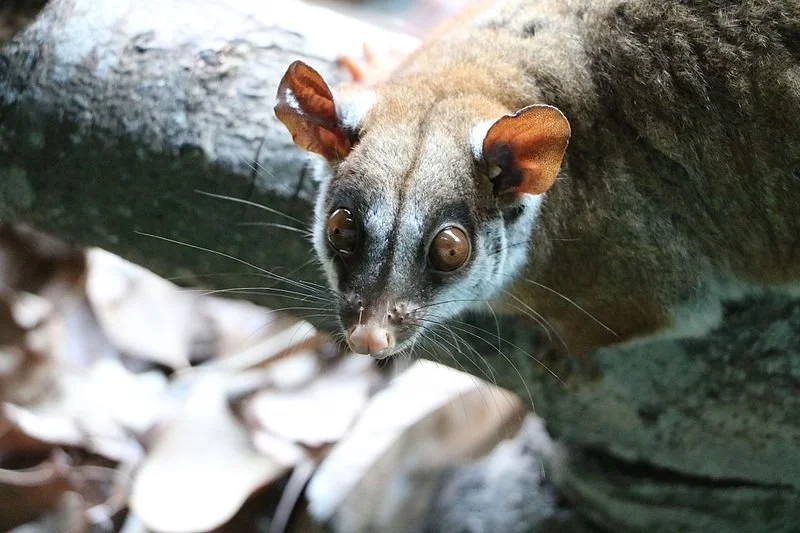Elizabeth Escobar Sulca - Phylogenomics of small mammals in the montane forest of Perú
The brown-eared woolly opossum (Caluromys lanatus), which inhabits eastern Perú and also ranges across South America. Photo from Wikimedia Commons.
Home institution and supervisors
Victor R. Pacheco. UNMSM, Perú.
Host institution and supervisors
Michael D. Martin, Jaime Morin. NTNU, Norway. 2023.
Project description
Perú is one of the most biodiverse countries in the world, home to around 573 species of mammals with a large number of endemic species (87). However, several taxa present taxonomic problems that need resolution. Many of these species inhabit the montane forests, which form an endemic area of Perú considered to be one of the world’s most threatened ecosystems. Mitogenome studies are a modern methodology used to solve these taxonomic problems within species complexes.
This project aims to obtain mitogenome sequences of opossums and rodents of Peruvian montane forests, mainly from taxa with taxonomic problems. Specimens from the Mastozoology Collection of the Natural History Museum of the UNMSM, will be used in a genome skimming and assembly approach that will yield complete mitogenome sequences. This genomic information will be used to resolve biogeographic problems, phylogenetic positions, and further detail the evolutionary history of these species. The project will also use conventional methodologies such as morphological and morphometric analysis to carry out an integrative taxonomic treatment of the various species. In this way, the study of Peruvian mammals diversity will enter the modern era of genomic science.
